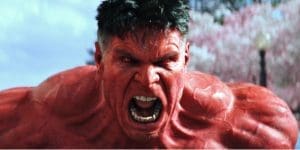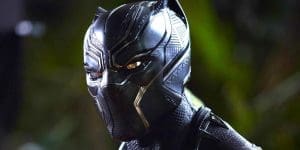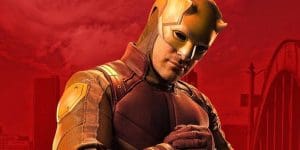Marvel’s Phase 5 is in full swing, and with a staggering 32 movies under their belt, Marvel Studios has firmly cemented itself as Hollywood’s powerhouse, amassing an impressive $29.6 billion at the global box office within just over a decade. Their approach to blockbuster franchises has revolutionised the industry, and a significant part of their success can be attributed to consistently delivering high-quality films.
Not too long ago, superhero movies were the exception rather than the rule, with even standout titles like “Superman: The Movie” and “Batman” (1989) eventually succumbing to lacklustre sequels. The early 2000s saw a glimmer of hope with hits like “Blade,” “X-Men,” and “Spider-Man,” but it wasn’t until the birth of the Marvel Cinematic Universe (MCU) that superheroes truly found their footing.
Breaking down the MCU into its narrative Phases provides a clear framework: Phase 1 (2008-2012) introduced the original Avengers, Phase 2 (2013-2015) explored the impact of heroes on the world, and Phase 3 (2016-2019) delved into the Infinity War against Thanos while ushering in a new generation of heroes. Phase 4 (2021-present) navigated the aftermath of “Avengers: Endgame,” leading up to Phase 5’s official shift into the Multiverse Saga in 2023. This approach not only keeps audiences engaged but also underscores the importance of each film’s individual contribution to the overarching narrative.
Let’s take a closer look at the MCU films, ranked from least impressive to most outstanding:
Iron Man 2 (2010)
“Iron Man 2” struggles to find its place within the expanding universe. While it attempts to adjust Tony Stark’s role for the impending Avengers team, its numerous subplots and disjointed storytelling dilute its impact. The film’s focus on setting up future events hampers its ability to stand on its own, undermining what made the original film compelling. Despite its notable cast and iconic Iron Man design, the sequel falls short compared to its counterparts.

Thor: Love and Thunder (2022)
“Thor: Love and Thunder” amps up the comedic and quirky aspects introduced in “Ragnarok,” but doesn’t fully deliver on pre-release promises. The movie excels in redeeming Jane Foster’s character and showcasing Christian Bale’s Gorr. While some elements fall short, the film’s post-credits scene brings joy and reflects Marvel’s willingness to let directors shape their vision.

Thor: The Dark World (2013)
“Thor: The Dark World” suffers from a lack of distinct identity, resulting in a forgettable and lacklustre entry. The movie’s failure to fully embrace its cosmic potential and inability to strike a balance between serious and comedic tones leaves it feeling bland. The disconnect from past developments within the MCU further weakens its impact, making it a low point in the franchise.

Ant-Man and the Wasp: Quantumania (2023)
Attempting to expand on the success of its predecessor, “Ant-Man and the Wasp: Quantumania” loses its charm in the pursuit of grandiosity. While introducing the concept of the Multiverse, the film’s convoluted plot and reliance on CGI diminish its impact. Despite strong performances and intriguing elements, the movie fails to deliver on its potential, leaving audiences disconnected from its stakes.
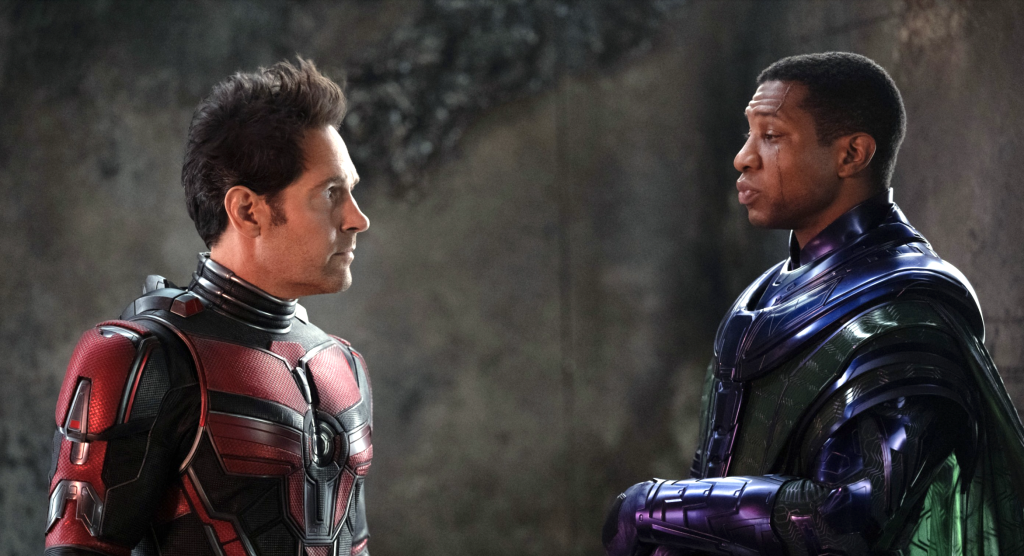
Ant-Man And The Wasp (2018)
“Ant-Man and the Wasp” falls victim to formulaic storytelling, stringing together disparate plot strands that fail to coalesce into a satisfying narrative. Despite its potential as a family comedy within the MCU, the film’s lack of ingenuity and underutilisation of character dynamics result in a forgettable experience. The reliance on humour and charisma cannot compensate for its overall lacklustre execution.
These rankings reflect the varying degrees of success that the MCU films have achieved. Stay tuned for the next instalment, where we’ll continue to explore and evaluate each film’s place within the larger Marvel universe. As Phase 5 unfolds, it’s clear that the MCU’s journey is far from over, and each film contributes to the ever-evolving tapestry of superhero storytelling.

Avengers: Age of Ultron (2015)
“Avengers: Age of Ultron” stands out as one of the biggest disappointments within the MCU. Despite the considerable hype and the weight of previous successes, the film fails to deliver on its potential. While attempting to delve into darker themes and expand character arcs, many ideas feel misguided and underdeveloped. The movie lacks the urgency and consequence needed to make its new themes, characters, and threats impactful. The disjointed storytelling and lacklustre editing undermine the positive elements, leaving audiences wanting more from this highly anticipated sequel.

Black Widow (2021)
After a decade-long wait, “Black Widow” finally grants Scarlett Johansson’s character a solo adventure. Positioned within the timeline of “Captain America: Civil War,” the film explores Natasha Romanoff’s past and her connections to the enigmatic Red Room. While the movie holds promise, its execution falls short due to poor filmmaking choices. The story, while expansive, suffers from miscasting and contrived narrative mechanics, weakening the impact of its third act. Despite strong performances, “Black Widow” fails to fully capitalise on its potential, leaving audiences with an underwhelming experience.

Eternals (2021)
With “Eternals,” MCU Phase 4 ventures into new territory, offering an experimental take on superhero storytelling. Drawing inspiration from mythic figures, the film explores characters who exist above and apart from humanity. While visually striking and bold in its approach, “Eternals” grapples with balancing its expansive narrative with character development. Some characters shine, while others lack depth and personality direction. As the MCU continues to evolve, “Eternals” serves as a mixed bag, leaving audiences intrigued yet somewhat confused by its creative choices.

Doctor Strange In The Multiverse Of Madness (2022)
Sam Raimi’s influence brings a sense of horror-comedy and multiverse exploration to “Doctor Strange In The Multiverse Of Madness.” While the film delivers on these aspects, it falls short in other areas. The handling of Scarlet Witch’s character and motivations raises concerns, and the movie lacks a sense of consequence due to plot contrivances. The once-complex Doctor Strange character experiences minimal development, leaving audiences with a movie that fails to fully engage and captivate.

Guardians of the Galaxy Vol. 2 (2017)
“Guardians of the Galaxy Vol. 2” offers stunning visuals and a likeable cast of offbeat heroes. However, the movie struggles to find a compelling central story, resulting in uneven pacing and a lack of momentum. While the film delves into themes of fatherhood and nature versus nurture, it fails to weave these elements into a cohesive narrative. The character-driven approach keeps the film afloat, with some characters receiving strong moments while others remain under-utilised.

Captain Marvel (2019)
“Captain Marvel” brings an intriguing non-linear structure to the MCU formula, exploring the origins of Carol Danvers and her journey to becoming a hero. The film offers a mix of strong moments and storytelling challenges, with a focus on the Skrull storyline standing out as a highlight. Despite its narrative complexities, “Captain Marvel” contributes to expanding the MCU’s lore and references. The film’s successes are balanced with moments of inconsistency and mixed reactions, creating a unique viewing experience.
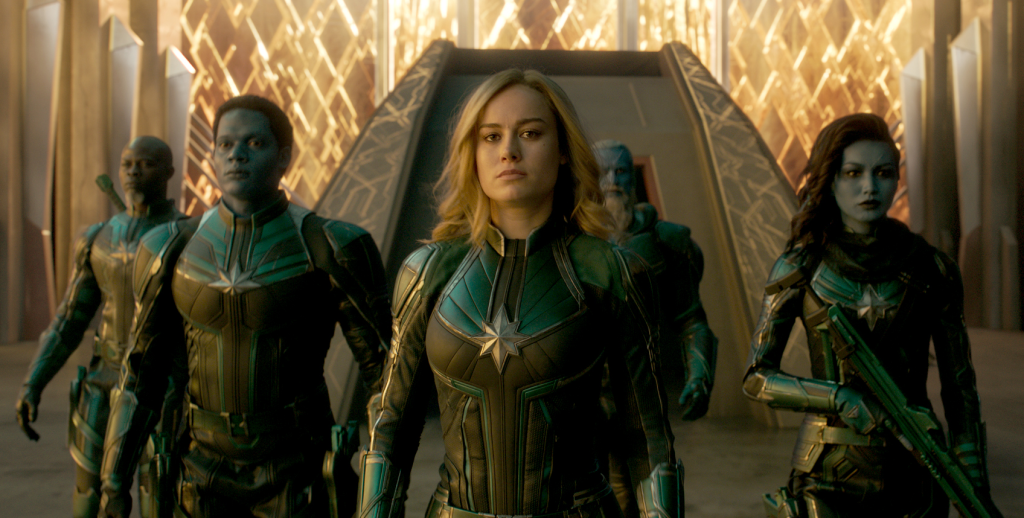
Ant-Man (2015)
“Ant-Man” introduces a new type of MCU origin story, featuring a hero emerging in a world already populated by established characters like the Avengers. The film benefits from solid casting and a likable supporting cast, making the most of its comedic elements. However, “Ant-Man” falls short in its action sequences and fails to break new ground in terms of visual storytelling. While it doesn’t reach the heights of some other MCU entries, the film’s character-driven approach contributes to its overall competency.

In a film that subsequent entries aimed to “correct,” “Thor” is an under appreciated MCU gem. Director Kenneth Branagh nailed the balance between comedy and drama, delivering a fish-out-of-water story with Shakespearean undertones. Chris Hemsworth’s Thor finds his stride alongside Tom Hiddleston’s complex Loki, and the supporting cast shines. Though not flawless, the film embraces comic weirdness and sets the stage for Thor’s evolution.

Shang-Chi And The Legend of the Ten Rings (2021)
“Shang-Chi” hearkens back to classic Marvel storytelling, offering a refreshing take on the superhero formula. Simu Liu’s earnest portrayal shines, while Awkwafina’s comedic performance steals the show. The film balances kung-fu action and emotional depth, setting up a promising future for Shang-Chi in the MCU.

“Iron Man 3” is a misunderstood gem with a unique personality. The film subverts expectations, introducing a thematically rich Mandarin while stumbling with other elements. Robert Downey Jr. delivers a charismatic performance, and the film’s distinctive style sets it apart from the formulaic Marvel movies that followed.

“Doctor Strange” offers a fresh and offbeat take on the MCU. Benedict Cumberbatch shines as the titular character, and the film explores heady themes of time and mortality. While its visuals can be excessive, the film organically integrates humour and character development.
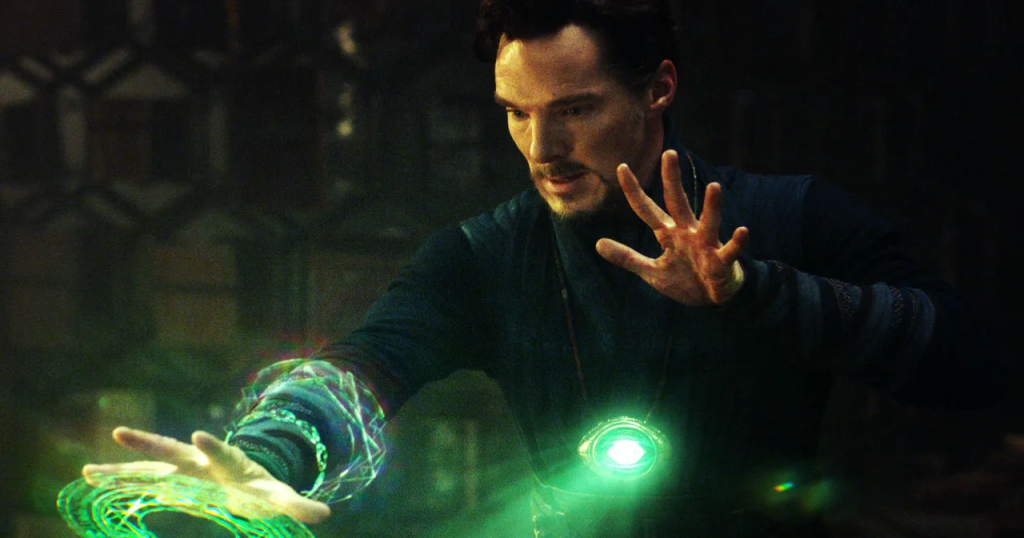
Black Panther: Wakanda Forever (2022)
“Wakanda Forever” carries the weight of its predecessor’s success and Chadwick Boseman’s passing. The film ambitiously expands the Wakandan universe while delivering a complex narrative. Introduction of new characters and themes contributes to its success, though some missteps occur.
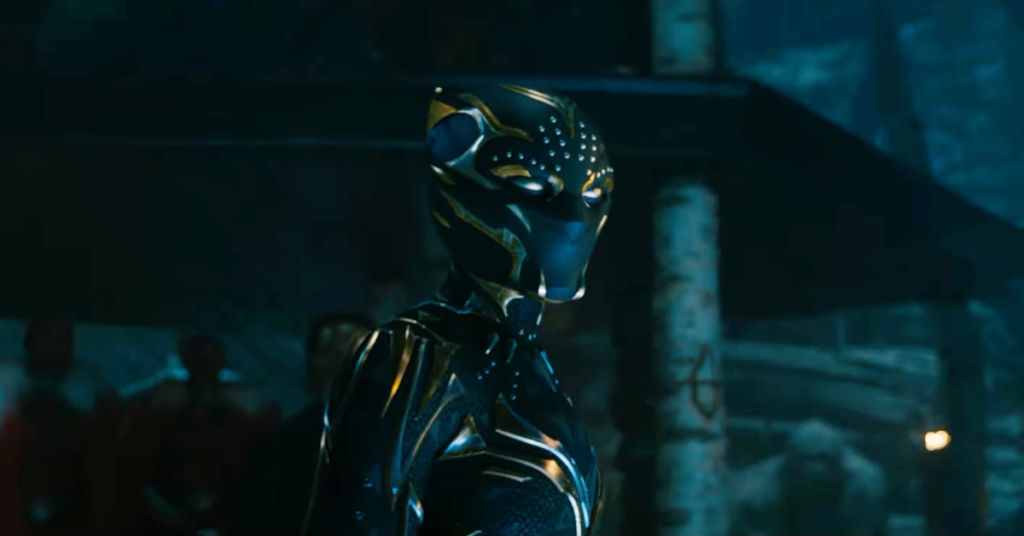
The Incredible Hulk (2008)
“The Incredible Hulk” struggles to find its place within the MCU, with limited continuity and a lack of narrative identity. While it contributes to world-building and sets the stage for future events, the film’s generic action and lack of unique qualities prevent it from standing out. It serves as a reminder of Marvel’s early experimentation and growth.

Spider-Man: No Way Home (2021)
“No Way Home” ambitiously ties together multiple Spider-Man franchises and MCU elements. While execution varies, the film manages to deliver emotional depth and thrilling moments. The movie’s strengths, including character dynamics, pay homage to its predecessors, making it a mixed yet captivating entry.

“Iron Man” kickstarts the MCU with a compelling origin story and introduces Robert Downey Jr.’s charismatic Tony Stark. The film’s distinct personality and strong filmmaking elements hold up well, proving its lasting impact on the superhero genre.

Captain America: The First Avenger (2011)
“Captain America” deconstructs its titular character, highlighting his transformation from propaganda piece to hero. Chris Evans excels as the Star-Spangled Man, and the film’s adventure and emotional depth lay a solid foundation for the Captain America series.

Spider-Man: Far From Home (2019)
“Far From Home” expertly balances high-school comedy, superhero action, and MCU connectivity. Tom Holland’s energetic portrayal and Jake Gyllenhaal’s Mysterio shine, although the film’s pacing and action sequences falter at times. The movie’s surprises and character dynamics ensure it’s a compelling watch.

In “Black Panther,” Shuri’s wisdom encapsulates the film’s innovative spirit, exemplifying how to elevate the Marvel formula. The movie magnificently introduces T’Challa, expanding on his earlier appearance in “Captain America: Civil War,” and dissects his core values while weaving in compelling social commentary. Director Ryan Coogler masterfully delves into the superhero genre, utilizing it to explore the scars of colonialism and the potential for redemption. Notably, Killmonger emerges as a standout character, challenging conventional villainy by embodying valid beliefs taken to the extreme.

18. Thor: Love and Thunder (2022)
“Thor: Ragnarok” embraces Marvel’s signature fun and entertainment factor. While boasting a visually impressive presentation and charismatic performances, the film prioritises humour over deeper thematic exploration. The movie’s subtext, revolving around colonisers and their hidden pasts, remains on the fringes and fails to fully resonate. Comedy takes centre stage, occasionally hampering the emotional depth that other MCU films have achieved by striking a balance between humour and tragedy.
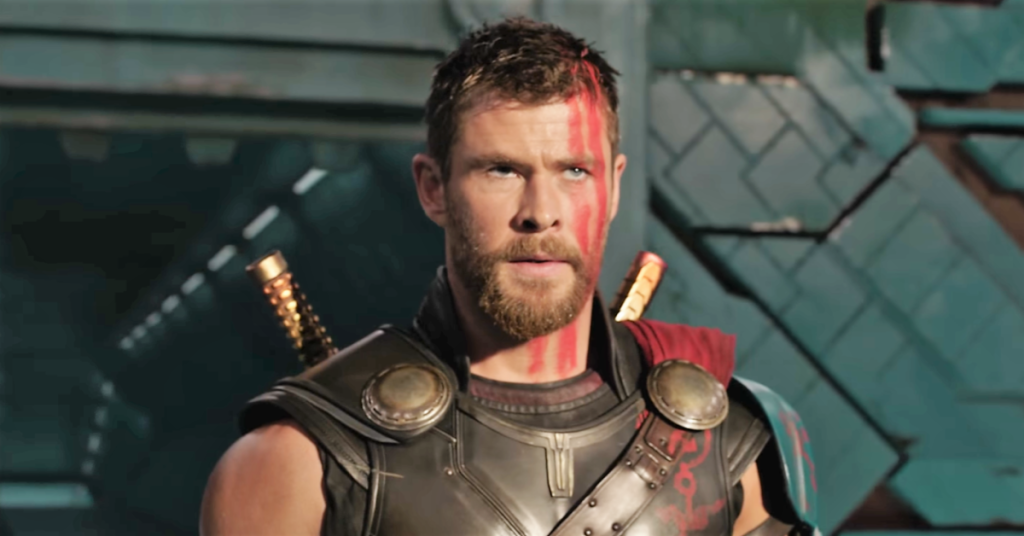
Guardians of the Galaxy (2014)
“Guardians of the Galaxy” epitomises Marvel’s daring, taking the gamble of featuring an unconventional team led by a talking raccoon and a sentient tree. Director James Gunn merges cosmic Marvel comics with his unique sensibilities, resulting in a swashbuckling adventure that expertly balances charm and humour. The film’s strength lies in its swagger, seamlessly blending superhero and sci-fi elements. While its plot falters in the second act, the characters’ development and the creation of a casually-zany universe make this a standout entry.

Guardians of the Galaxy Vol. 3 (2023)
James Gunn concludes his Guardians trilogy with “Vol. 3,” wrapping up each character’s arc in a satisfying manner. The film delves deep into their personal journeys, granting them fitting resolutions. Gunn’s musical choices amplify the emotional impact, culminating in a heart-wrenching portrayal of Rocket’s origin story. “Guardians of the Galaxy Vol. 3” upholds the franchise’s heart, humor, and cosmic scale, even as it bids farewell to this iteration of the team.

“Avengers: Endgame” encapsulates the MCU’s culmination, delivering a character-driven spectacle that ties up multiple storylines. The Russo brothers craft emotional scenes that resonate deeply, despite some plot inconsistencies. As the culmination of an era, the film boasts grand stakes and showcases the heroes’ unity. While not flawless, “Endgame” serves as a testament to the essence of the MCU and the impact it has achieved.

“Spider-Man: Homecoming” successfully reboots the iconic character while striking a perfect balance between superheroics and relatable teenage struggles. Tom Holland’s portrayal captures the youthful spirit, and the film’s John Hughes references add depth to Peter Parker’s world. The ingenious twist involving the villain further exemplifies the film’s adept storytelling, firmly grounding it in the MCU.
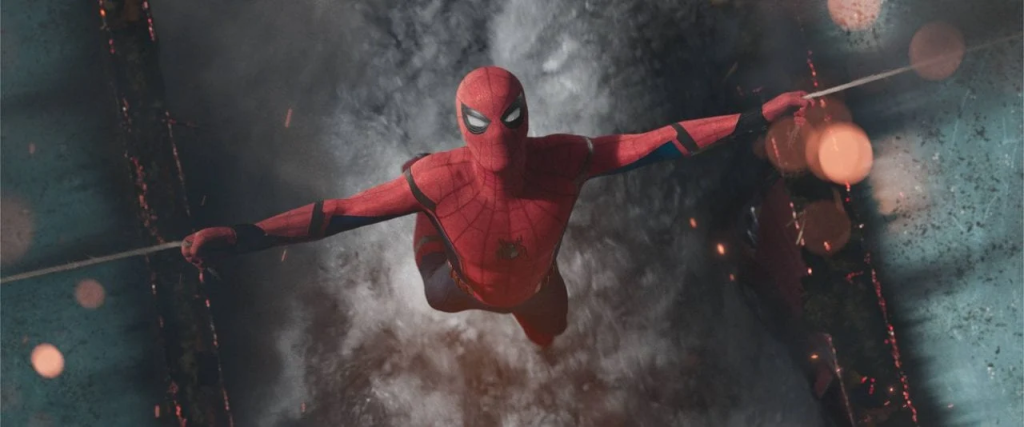
Captain America: Civil War (2016)
“Captain America: Civil War” elevates the MCU with a thought-provoking exploration of the consequences of superhero actions. The film effectively combines personal narratives with a larger conflict, resulting in a well-rounded character study. The introduction of new heroes and the depiction of ideological clashes emphasise the franchise’s evolution.

“Avengers: Infinity War” showcases Thanos as a complex and compelling villain, steering the narrative through his misguided yet determined quest. Despite its sprawling ensemble, the film maintains focus on its central characters, creating an audacious spectacle with a profound impact. The film’s emotional weight and character-driven core contribute to its success.

“The Avengers” solidified the MCU’s dominance, bringing together diverse characters in a cohesive and exhilarating team-up. Joss Whedon’s direction strikes a balance between humor and action, laying the groundwork for subsequent films. The movie’s influence on the superhero genre and the shared universe concept cannot be overstated.

Captain America: The Winter Soldier (2014)
“Captain America: The Winter Soldier” emerges as a standout due to its timely exploration of modern espionage and personal freedoms. The film’s portrayal of Steve Rogers’ internal conflict and his relationship with Bucky is a highlight, showcasing the emotional depth that the MCU can achieve. The Russo brothers’ expert direction and the film’s ability to stand on its own as a superb entry make it the pinnacle of the Marvel cinematic universe.

In summary, these films have left an indelible mark on the superhero genre, each pushing boundaries and reshaping expectations in their own unique ways. From thought-provoking themes to heart-pounding action, the MCU continues to captivate audiences with its diverse array of storytelling.
Do you agree with our list? Which would you rank as your top 5 films?


